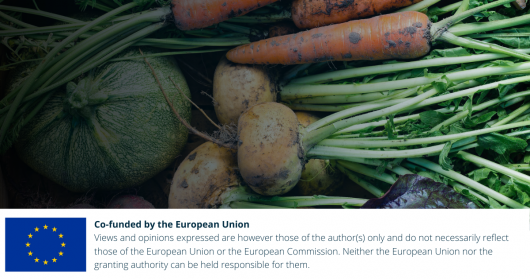Organic farming in the EU - What role for a greener Europe?
18-04-2024

WATCH THE RECORDING HERE
Expanding organic farming and agricultural lands in the EU is at the heart of the European Green Deal’s initiatives. Organic farming uses natural substances and processes to produce food and brings environmental, economic and social benefits.
To support European green ambitions, the European Commission launched the Farm to Fork Strategy in 2020. One of its aims is to bolster organic food sales and production with a focus on a fair and sustainable supply chain. This initiative was reinforced through the Organic Action Plan which seeks to achieve 25% of organic agricultural land by 2030. However, currently, only 10% of EU agricultural land is organic.
Organic farming is more labour-intensive and produces lower yields than conventional farmers, while generating similar income. Despite receiving economic support through the CAP, organic farmers feel they remain inadequately remunerated because their selling prices are lower than the retail prices.
While the EU seeks to boost organic farming and food supply, some stakeholders argue that the EU needs a more robust implementation to transition towards fair and organic food systems. Others believe that the text on new genomic technologies (NGTs) approved by the European Parliament could help reach the target on organic agricultural lands.
Join this Euractiv Virtual Conference to discuss the sustainability of organic farming and its implications for reaching European green ambitions. Questions to be addressed include:
- How can the EU strengthen the position of organic farmers in the supply chain?
- How can the gap between organic produce selling prices and retail prices be addressed?
- How compatible are the NGTs and organic farming in light of the target for agricultural lands set by the European Commission?
- What steps are needed to further develop organic food supply and demand?
Views and opinions expressed are however those of the author(s) only and do not necessarily reflect those of the European Union. Neither the European Union nor the granting authority can be held responsible for them.
Co-funded by the European Union.
Location
Online
Panellists
Henri Delanghe
DG AGRI, European Commission
Peter Schmidt
President, Agriculture, Rural Development and Environment Section (NAT), European Economic and Social Committee (EESC)
Martin Dermine
Executive Director, PAN Europe
Jan Plagge
Board President, IFOAM Organics Europe
Lone Andersen
Chair, Organic Working Party, Copa-Cogeca
Moderator
Angelo Di Mambro
Euractiv
Schedule
09:30 – 09:35 Welcome
09:35 – 09:50 Panellist statements
09:50 – 10:40 Discussion and Q&A
10:40 – 10:45 Closing statements
Contact
Síofra Gilmore
siofra.gilmore@euractiv.com




